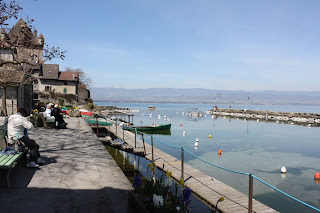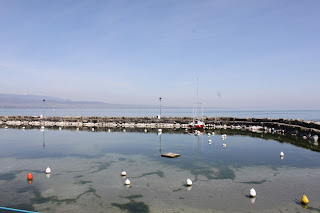My last visit to Spain mainly covered the Andalusia Region
on the Southern part of The Iberian Peninsula. As our flight into and out of Spain
passed through City of Madrid, I did search around to look for nearby
attractions for our must-visit list…… then I found Segovia. I have never heard
of the City of Segovia before ( A UNESCO World Heritage Site), until my search
revealed an impressive fortress of Roman or Celtic influence as their major attraction
here.
 |
Built in the 14th Century, the Alcazar de Segovia
used to be a fortress and also has served as the Royal Palace. It stands in a perched position over a cliff where
it can be seen from miles away. With its fairy-tale appearance of the conical
turrets and moated walls, it was said that The Disney’s Magic Kingdom was an
adaptation of this lovely castle. Open to the public, the Alcazar now served as
a museum where there are displays of armor suits, tapestries etc. Some of the
rooms have extensively decorated ceilings…..
You can also enjoy very nice views outside the surrounding areas from
the castle.
 |
| |
 |
Another major attraction in the City of Segovia is the Roman
Aqueduct. I must admit, this is by far much more impressive than the castle
itself!!! Probably built in the year AD
50, this huge structure amazingly has survived and has been well preserved. The
construction of this aqueduct is definitely an engineering marvel! Just imagine, to erect an enormous
construction of masonry 813 m in length, consisting of four straight
segments and two superimposed arcades borne by 128 pillars!!! At the lowest point of the valley, the
aqueduct stands at a height of 28.5 m above ground!!!
This aqueduct served to supply water to the city and the
castle from its origin in Sierra de Guadarrama mountain range with total
extension of 14,965 m. It was declared as the National Monument back in 1884
and declared as World Heritage in 1985. It is a good example of a Masterpiece
of Roman hydraulic engineering, the aqueduct is composed of large un-mortared,
brick-like granite ashlars. Water flows through the channel on its attic or top
portion and crosses the city beneath the pavement towards the Alcazar. This
aqueduct is also the tallest and most well-preserved found outside Italy.













































